Welcome to Petplan’s blog, a space where you can read up on the latest pet-news, find out interesting facts and tips about keeping your pets happy and healthy, and share your views on hot topics.
Refine articles by
clear searchHow to clip your pet's nails
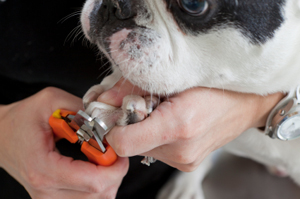
Cats changing colour - what it means
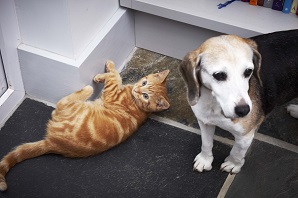
Q: The weirdest thing has been happening to our black cat - he has started to turn brown. He's nine years old and a rescue cat that we don't have much history on. Now and again he even leaves some brownish marks on his bed. Is this normal?
A: There are two possibilities here that could explain your cat's apparent colour changes. The first is fleas, or more accurately, flea excrement, which is dark brown/black in colour. It contains haemoglobin from consumed blood, which can stain clothes and bedding dark brown. Check the base of your cat's skin and look for small dark nuggets, picking them up with wet, white tissue. When rubbed between the fingers these should turn a reddish colour. Secondly, many black cats go for the sun-bleached look during the warmer months. This generally changes back to their darker hue as the winter nights begin to draw in and they shed their summer coat for the thicker winter one. If this is the case, your little cat will soon return to the sleek ebony black you remember.
Scott Miller, vet
Four canine 'superfood' for 2012
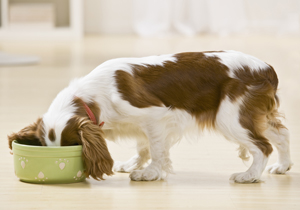
Is your dog's incontinence a cause for concern?

Q: My five-year-old Labrador's bedding is always damp in the morning. She is not overweight and gets plenty of exercise. What could be causing this?
A: The most likely cause of her damp bedding is small amounts of urine, as it is not uncommon for female dogs to become urinary incontinent as they get older. Sometimes associated with neutering, hormonal urinary incontinence results in leaky urinary sphincters (the smooth muscle valves involved with urinary control), leading to a dog who dribbles at night, when they are asleep and rely on involuntary control. As a first step, it is worth taking your dog and a urine sample into your vet clinic because, if diagnosed, this condition tends to be very well controlled with daily oral medications.
Scott Miller, vet
Pet owners: some quick ways to save money in 2012

How to tell if your cat has hyperthyroidism
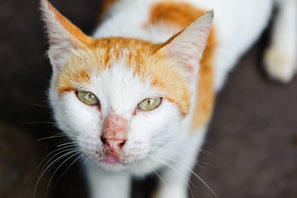
Diet: are you feeding your rabbits the right way? Read this to be absolutely sure
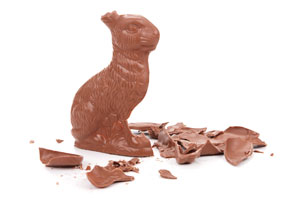
Why your cat is spraying and how to stop it

Q: My Siamese female cat, Bella, has started spraying. I thought only male cats sprayed?
A: All cats will spray - it is natural marking behaviour. Cats may spray when something has upset them, their core environment has changed, or another cat has entered their garden or house. Bella may be spraying to signal to the other cat to keep away from her territory. I have also come across some Siamese that have learnt to spray to get their owner's attention!
Inga MacKellar, animal behaviourist
How to keep your pet content in old age
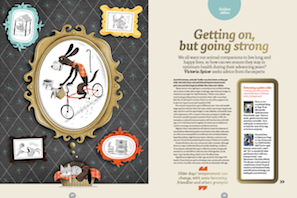
We all want our animal companions to live long and happy lives, so how can we ensure they stay in optimum health during their advancing years? Victoria Spicer seeks advice from the experts. From the PetPeople magazine archive
As with humans, animals' bodies can slow down as they get older, but veterinary and nutritional improvements mean pets can now live longer, healthier lives than ever before.
'Many owners view ageing as a normal process and feel nothing can be done to help relieve signs of old age,' says Gemma Lovegrove, veterinary manager for Cats Protection. 'Others worry about mentioning problems they've noticed in their older cat as they fear the vet will say it's serious. However, very often, support can be given to improve your pet's quality of life.'
Our animal companions age at different rates. Cats and smaller dogs may live well into their late teens, while some larger dog breeds may only live until the age of eight or nine. Rabbits, meanwhile, have a life expectancy of eight to 12 years. Once your pet passes 'middle age', it's worth considering ways to preserve their quality of life. For example, an animal's immune system will function less well with age, so it's vital they receive regular vet check-ups in addition to routine worming, vaccinations and flea treatments.
Regular clinic examinations will also increase the chances of any health problems being discovered early. And, while older pets are often more susceptible to conditions such as kidney disease, hyperthyroidism, high blood pressure, diabetes, cataracts and cancers, it’s worth remembering that many of these are treatable.
Osteoarthritis is also very common in older animals, although there are ways to alleviate this potentially disabling condition. 'From physio and hydrotherapy to effective modern drugs with minimal or no side effects, there are lots of things that can be done,' says Caroline Reay, chief vet for The Blue Cross.
Significant weight loss in older age can be the first sign of ill health. If you find your pet is refusing to eat, you should seek your vet's advice. 'An older cat's sense of smell can diminish with age, which may lead to a loss in appetite,' says Gemma. To encourage your pet to eat, try giving meals on a little-and-often basis, adding a little water, or warming the food to increase the smell.
Conversely, pets can be prone to weight gain as they get older, despite not eating extra. 'It's now well-known that being overweight is linked with problems such as arthritis, as well as an increased incidence of cancer, pancreatitis and diabetes,' says Caroline.
When it comes to nutrients, many pet food companies make special feeds that target older cats and dogs, providing concentrated sources of protein, reduced fat, easily digestable carbohydrates, and key vitamins and minerals. Dental issues are also prevalent in the older pet. Look out for any redness of the gums, discomfort or smelly breath, as this may be an indication of disease. Regular brushing will help, as will yearly dental checks by your vet.
Equally important to look out for are behavioural changes in your cat or dog, which could be related to a decrease in vision and hearing, or to cognitive dysfunction syndrome. This can cause confusion, disturbed sleep patterns, a decreased attention span and house-training difficulties in your pet. 'Older dogs can change in temperament, with some becoming friendlier and more attached to their owners, and others getting grumpier,' says dog trainer Bobs Broadbent. 'Some may become anxious because they cannot see or hear as well as they used to. A sudden personality change can be a sign of illness, but in old age this could equally be a gradual process, so take time to observe your pet's behaviour.'
Rabbits, too, will go through changes as they get older, becoming more prone to obesity, dental problems and arthritis. They may show certain behavioural changes or start developing health problems - as soon as you notice anything, speak to your vet.
The message is clear: old age need not mean a cheerless life for your pet, and there's a lot you can do to maximise its wellbeing. Whether it's a much-loved cat, dog or rabbit, extra vigilance and regular check-ups - plus a focus on the quality of the time they have as well as the quantity - is sure to pay dividends for you both.
Pamper them
To contribute to their general wellbeing, dogs, cats and short- haired rabbits should be groomed weekly, while long-haired rabbits will need daily attention. 'Older cats experiencing stiffness may find it more difficult to groom themselves,' comments Gemma Lovegrove from Cats Protection. 'Gentle use of a soft brush can help.' Vicky Lees, who owns The Dog Spa in Cheshire, adds: Circular massaging movements with a soft brush can increase circulation and blood flow to the skin and hair follicles, stimulating the lymphatic nodes to boost the immune system.'
Keep them busy
Older dogs should stay active to avoid age-related issues such as obesity and arthritis, but don't let your pet overdo it. 'As dogs get older they tend to slow down, but taking less exercise can be the startto putting on weight,' warns dog trainer Bobs Broadbent. Your dog must be allowed to move at its own pace. Aim for regular, shorter walks and don't suddenly increase the amount of exercise they get as this may leave them stiff and sore the next day. Also, bear in mind that older dogs may be able to see and hear less well, so they can become disoriented or lost when out for walks. Your vet can help you devise a suitable exercise routine for your own animal.
Minimise change
Older pets may become disorientated by deviations from their routine or loud noises, particularly as their senses begin to fail. Having said that, certain types of change can enhance their quality of life. They may sleep more than before, so will appreciate access to a softer bed in a warm and draught-free place. Cats may be unable or unwilling to jump up to higher surfaces, so you may need to provide 'steps' up to their favourite spots. Older dogs sometimes struggle with journeys - a specially designed ramp will help them access the car.
Does your cat have fur balls or something more serious?

Q: My healthy seven-year-old Persian cat is frequently sick. She seems fine, then suddenly vomits. She even wakes up to be sick. I don't think it is fur balls. What could it be?
A: First, it is more accurate to redefine this as regurgitation, a physical response by the gut to something that is not sitting quite right, forcibly removing it and feeling fine afterwards. Vomiting generally occurs because of a metabolic illness, with the cat uninterested in food afterwards, which is not the case here. Regurgitation can occur in animals who get excited at meal times and eat too quickly. Feed your Persian in smaller portions to see if it helps. It's also worth knowing that fur balls don't only present in the cat bringing up actual balls of fur. It can be just a few strands of hair irritating the stomach lining, which leads to regurgitation. Try a fur ball remedy, obtained at your vet clinic and used two or three times weekly, then return to see the vet if this symptom continues.
Scott Miller, vet


